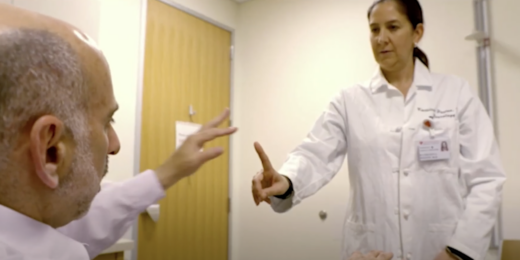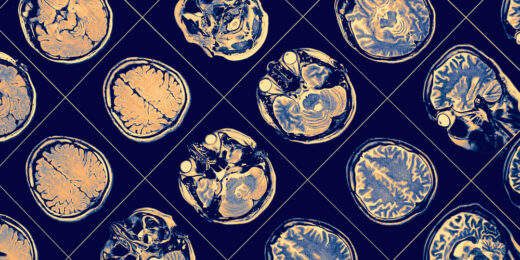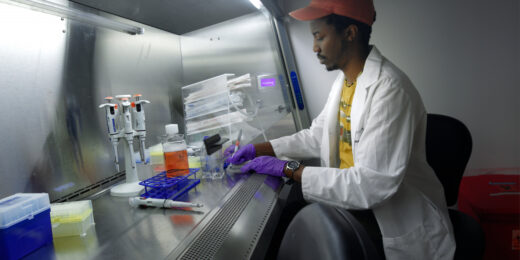The so-called ‘forever chemicals’ can stick around in the environment — and in our bodies. Scientists agree there is cause for concern. So what should we be doing to mitigate our health risks?
Category: Precision Health
Mental health and menopause: There are connections and solutions
Many women experience extreme mood fluctuations as they approach menopause. Stanford Medicine’s Karen Adams says knowledge and access are key to aiding this normal condition.
These are the tools for providing top-notch diabetes care to everyone
Using AI, continuous glucose monitors, and an equity approach, diabetes care could be saving many more lives, Stanford Medicine researchers say.
What getting granular with pregnancy data means for those of AANHPI heritage
By further segmenting study results, Stanford Medicine’s Irogue Igbinosa and collaborators have begun to tease out important health differences between different subsets of the population.
Ask Me Anything: Everything to know about allergy season — and more
An Ask Me Anything Q&A with Stanford Medicine's Sharon Chinthrahjah, and expert on all things allergy-related.
Why detecting the earliest biological signs of Parkinson’s disease is so crucial
A new test can detect the biological signature of Parkinson’s disease before symptoms arise. A Stanford Medicine neurologist explains why early diagnosis opens the door to better therapies.
One step back: Why the new Alzheimer’s plaque-attack drugs don’t work
A few closely related drugs, all squarely aimed at treating Alzheimer’s disease, have served up what can be charitably described as a lackadaisical performance. Stanford Medicine neurologist Mike Greicius explains why these drugs, so promising in theory, don’t appear to be helping patients much if at all.
How the death of his wife drives data scientist to improve the system
In his grief over losing his wife, Amir Bahmani realized how much data science could impact medicine and potentially save lives.
New cardiovascular risk calculator includes social determinants of health, excludes race
Many social determinants of health can influence a patient’s risk, but Palaniappan and fellow researchers have noticed, from working with data from patients around the nation, that race is not among the most accurate or equitable.
How music gives aspiring physician-scientist a proper life rhythm
Quenton Rashawn Bubb continues to value the complex, complementary nature of work on parallel paths -- not just as a musician/academic, but now on the path to his career.
Why precision medicine leads to better diabetes care
Improvements in treatment technology are helping physicians deliver individualized care to their Type 1 diabetes patients.
What is behind the legal drug crisis in the US?
The cost of branded pharmaceuticals and quality and availability of generic versions are two key issues facing the U.S. marketplace.
What one youth mental health expert wants you to know about suicide
September is Suicide Prevention Month and mental health experts at Stanford Medicine have important information to share.
How to regulate AI? Bioethicist David Magnus on medicine’s critical moment
The applications for AI in medicine are being explored deeply at Stanford Medicine and elsewhere. Putting guardrails in place now is crucial.
A more complete imaging technique could personalize cancer treatment
Stanford Medicine scientists devised a cancer imaging technology that opens doors to new research questions and precision medicine.
Biomarkers predict weight loss, suggest personalized diets
Researchers compared diets and found that some people responded better to different types of nutrition when it comes to weight loss.

















